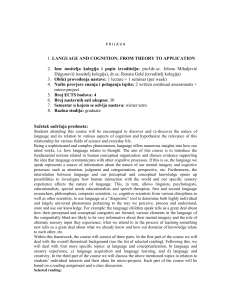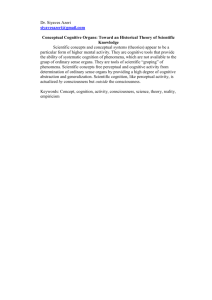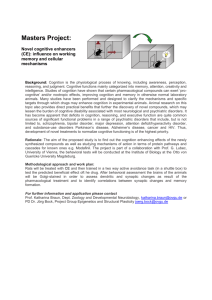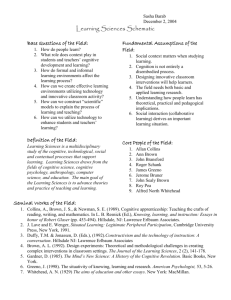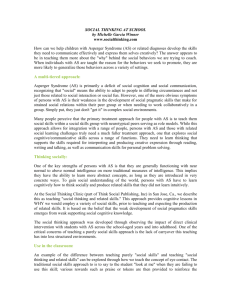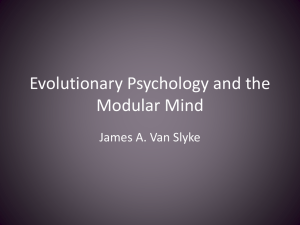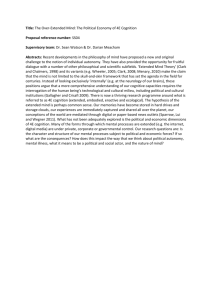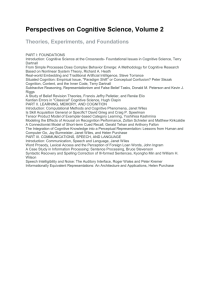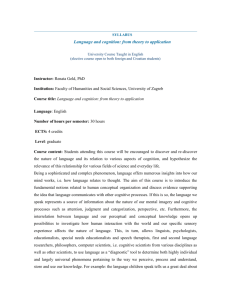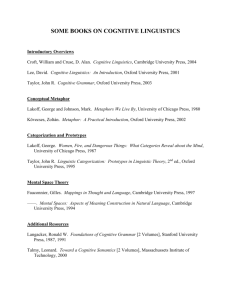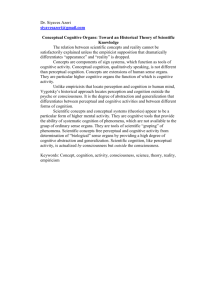Handout - Extended Knowledge Project
advertisement
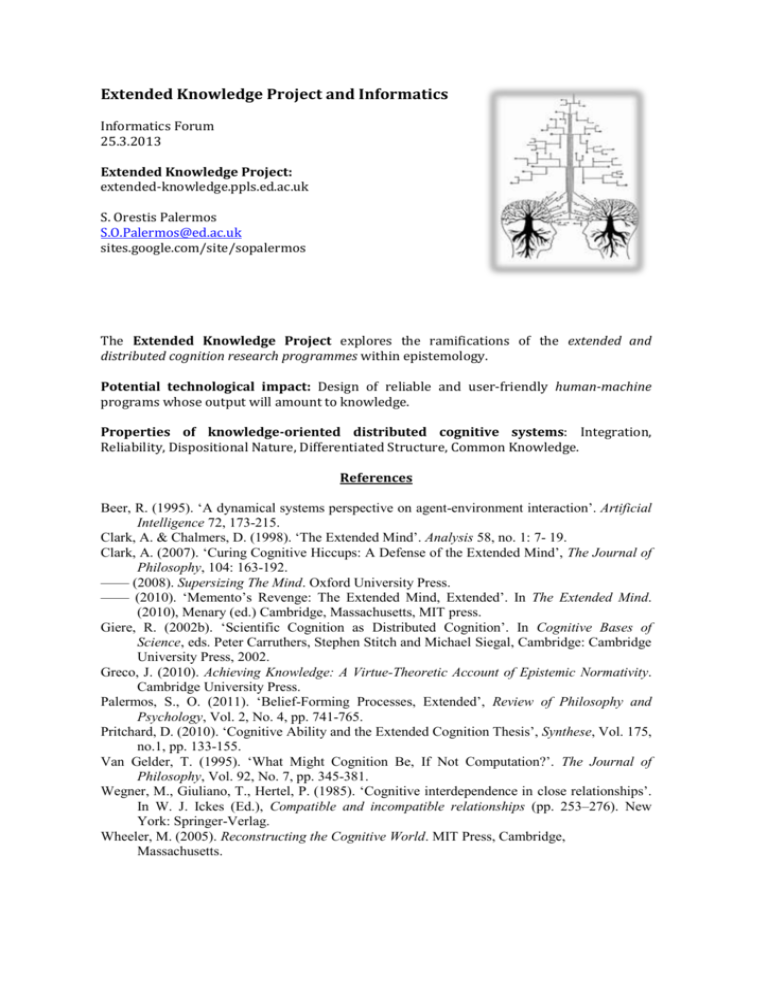
Extended Knowledge Project and Informatics Informatics Forum 25.3.2013 Extended Knowledge Project: extended-knowledge.ppls.ed.ac.uk S. Orestis Palermos S.O.Palermos@ed.ac.uk sites.google.com/site/sopalermos The Extended Knowledge Project explores the ramifications of the extended and distributed cognition research programmes within epistemology. Potential technological impact: Design of reliable and user-friendly human-machine programs whose output will amount to knowledge. Properties of knowledge-oriented distributed cognitive systems: Integration, Reliability, Dispositional Nature, Differentiated Structure, Common Knowledge. References Beer, R. (1995). ‘A dynamical systems perspective on agent-environment interaction’. Artificial Intelligence 72, 173-215. Clark, A. & Chalmers, D. (1998). ‘The Extended Mind’. Analysis 58, no. 1: 7- 19. Clark, A. (2007). ‘Curing Cognitive Hiccups: A Defense of the Extended Mind’, The Journal of Philosophy, 104: 163-192. —— (2008). Supersizing The Mind. Oxford University Press. —— (2010). ‘Memento’s Revenge: The Extended Mind, Extended’. In The Extended Mind. (2010), Menary (ed.) Cambridge, Massachusetts, MIT press. Giere, R. (2002b). ‘Scientific Cognition as Distributed Cognition’. In Cognitive Bases of Science, eds. Peter Carruthers, Stephen Stitch and Michael Siegal, Cambridge: Cambridge University Press, 2002. Greco, J. (2010). Achieving Knowledge: A Virtue-Theoretic Account of Epistemic Normativity. Cambridge University Press. Palermos, S., O. (2011). ‘Belief-Forming Processes, Extended’, Review of Philosophy and Psychology, Vol. 2, No. 4, pp. 741-765. Pritchard, D. (2010). ‘Cognitive Ability and the Extended Cognition Thesis’, Synthese, Vol. 175, no.1, pp. 133-155. Van Gelder, T. (1995). ‘What Might Cognition Be, If Not Computation?’. The Journal of Philosophy, Vol. 92, No. 7, pp. 345-381. Wegner, M., Giuliano, T., Hertel, P. (1985). ‘Cognitive interdependence in close relationships’. In W. J. Ickes (Ed.), Compatible and incompatible relationships (pp. 253–276). New York: Springer-Verlag. Wheeler, M. (2005). Reconstructing the Cognitive World. MIT Press, Cambridge, Massachusetts.
